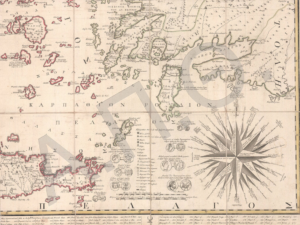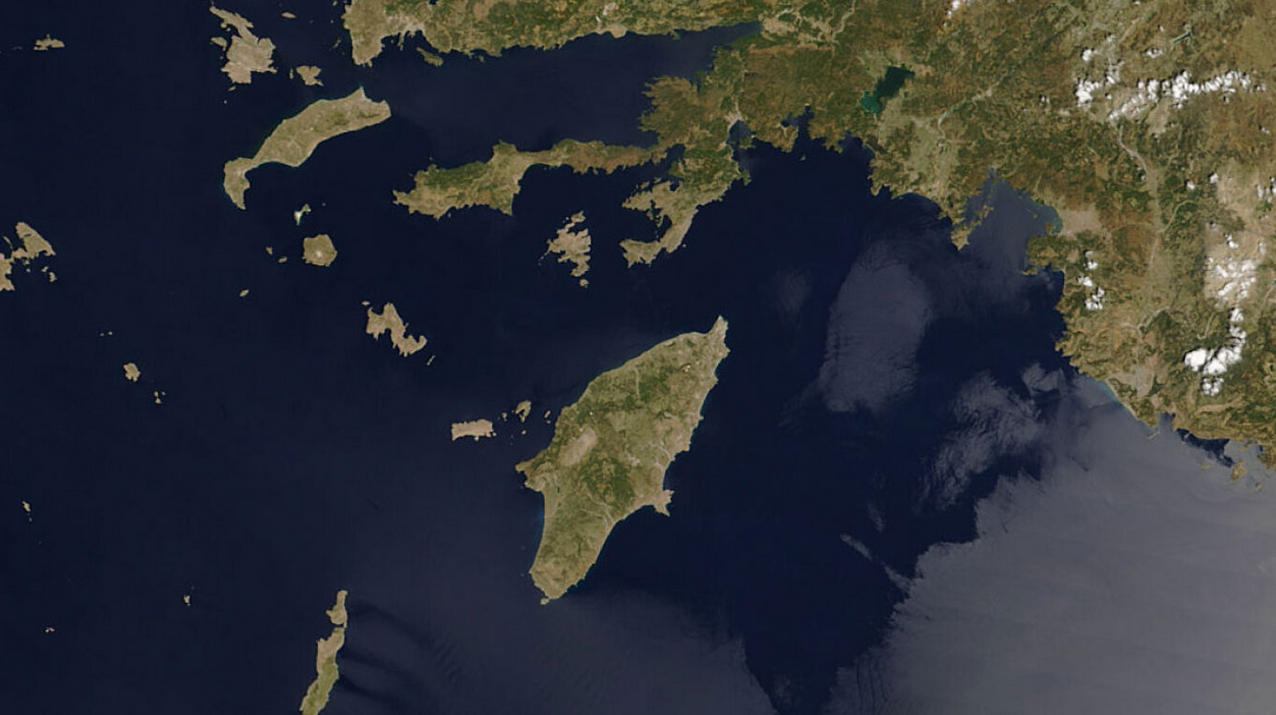Α unique book was once written about the history of the Southern Sporades. This book, which even coined the name “Dodecanese,” is titled “LES ILES DEL’ÉGÉE, LEURS PRIVILÈGE” (written by Jeanne Z. Stefanopoli, chief editor of “MESSAGER D’ATHENES”).
Stefanopoli, who has a significant family history, was utilized by Venizelos as an envoy to the Great Powers to secure the islands of the Aegean (Samothrace, Lesbos, Chios, Samos, Dodecanese, etc.) for Greece. However, before the book was published, in August 1912, the Dodecanese were occupied by the Italians. Among other events, Stefanopoli also referred to the events of the secession of our islands from Greece in 1830.
The London Protocol, as stated in her book, had established Greece without further definition. Subsequent negotiations with the Sublime Porte would determine the boundaries of its territory and which islands of the Archipelago would be included. The Great Powers, to ensure the execution of the Protocol, asked Kapodistrias a series of twenty-four questions to provide interpretation on this matter. Among other things, Kapodistrias replied that the islands’ history, monuments, continue to attest that Cyprus, Rhodes, and many other islands are only parts of Greece. The Great Powers then decided that those regions which took up arms against the Turks during or after 1821 and whose by far overwhelming majority of inhabitants were Greeks, Christians and of course speaking the Greek language would be included in Greek territory. Among others, the islands mentioned were: Kasos, Astypalaia, Patmos, Leros, Kalymnos, Nisyros, Tilos, Halki, Symi, Karpathos, Kastellorizo. These are the 11, because the “Dodecanese” to which Stefanopoli referred included Ikaria as well.
For a certain period, the Great Powers seemed to accept this demarcation. However, ultimately, the islands beyond the “39th degree of northern latitude and 26th of eastern longitude” “returned” to Turkey in exchange for Euboea. To Kapodistrias, their tireless and fervent supporter, there was no other resource but to suggest to the islanders: “Address the ambassadors of the Allied Powers.” The only thing the islanders managed was the preservation of the Principality of Samos and some privileges for their islands, even though the Southern Sporades had the same autonomy status as Samos before 1821. The Great Powers, for serving their own interests, ceded them to the Ottoman Empire, thus losing their autonomy. In other words, they did not return as they said but were occupied by the Ottoman Empire.
During the years from 1830 to 1912, the islanders of the twelve islands were consumed by struggles to maintain certain privileges that were gradually being stripped away by the Turks. After the Balkan Wars, Venizelos began a colossal effort to integrate all the islands of the eastern Aegean into Greek territory.
For the islands already held by Italy, namely today’s “Dodecanese,” Venizelos negotiated with Italy. Italy, needing initially Greece’s support to settle various issues in Albania and Asia Minor, signed through its Ambassador in Paris, Tittoni, to transfer the Dodecanese to Greece.
After the Treaty of Sèvres, signed on 28.7.1920, on 10.8.1920, another Agreement Bonin-Venizelos was signed, renewing almost all the commitments previously undertaken by Tittoni, in accordance with the Treaty. The Treaty of Sèvres provided in article 122 that the Ottoman Empire renounced in favor of Italy the following islands of the Aegean Sea: Astypalaia, Rhodes, Halki, Karpathos, Kasos, Tilos, Nisyros, Kalymnos, Leros, Patmos, Symi, Leipsoi, Kos, and the adjacent islets, including Kastellorizo.
Therefore, with the Bonin Longare-Venizelos agreement, Italy renounced in favor of Greece all its rights and titles to the islands of the Aegean Sea mentioned in article 122 of the Treaty of Sèvres, except for Rhodes and the dependent islets: the latter would remain under Italian sovereignty but with considerable local autonomy to be granted to them within two months. The aforementioned islands would return under the ecclesiastical administration of the Ecumenical Patriarchate. Additionally, Italy undertook to allow the population of Rhodes to decide freely on the fate of the island on the day England decided to transfer the island of Cyprus to Greece. This agreement also provided for the division of Southwest Asia Minor between Greece and Italy and defined their borders.

Fredi Beleris: I didn’t expect such a mockery of a trial, Rama was the orchestrator
However, the situation changed with the agreement between France and Turkey, which led to the Asia Minor Catastrophe. Nevertheless, in Lausanne in 1923, Venizelos declared at the conference that he had no objection to Article 15 of the Treaty draft, under which Turkey undertook to relinquish in favor of Italy all rights and titles over the Dodecanese enumerated in that article. He considered the process followed fair. However, he reminded that there was an unratified treaty between Italy and Greece regarding the issue of the final cession of these islands and maintained the right of the Greek government, provided that Turkey withdrew its rights to these islands, to participate in discussions necessary to determine their fate. The Greek Government, by making this reservation, relied on the spirit of justice and equality for all, particularly of the Italian Government, to resolve the issue of the Dodecanese in accordance with the principle of nationalities and the commitments that had already been undertaken.
Meanwhile, the fascist party of Mussolini came to power in Italy (28.10.1922). The Italians persuaded the British and French to keep the Dodecanese for their balance of power in the Eastern Mediterranean in exchange for agreements they had already made with Turkey for the Middle East. At the special meeting of the Powers, while the British supported that the Greeks could fortify the islands and have as much army as they wanted, something that the French would support as well, the Italians reacted and supported the unilateral Turkish positions, thinking it would be a problem even for the islands they would eventually hold, namely the Dodecanese.
>Related articles
However, after the Asia Minor Catastrophe, Greece was isolated from the Great Powers because they saw it as an obstacle to their plans. Venizelos, in an attempt to reintegrate Greece, signed a first agreement with Italy in 1928, and in practice, the agreement with Bonin Longare was forgotten. Thus, the Dodecanese were abandoned by Greece and remained at the mercy of the Italians. However, on 4.1.1932, the Italians signed a treaty with the Turks in Ankara, which determined the borders of the two countries: Italy – Turkey. This Treaty was ratified by the League of Nations (Societe des Nations) with act number 3191. Therefore, the status of the Southern Sporades and their borders with Turkey were precisely determined by this treaty.
The rest is a mostly well-known and partly unknown history. During World War II, the islands played a central role, for the reasons we will see below, so the Germans handed them over on orders of Hitler. Eventually, the Dodecanese was ceremonially incorporated into Greece on March 7, 1948 (75 years ago). So, what are these Dodecanese islands for which there were so many struggles?
The Italians counted them and found that they are 756 islands, islets, and rocky islets. These islands define a zone of sovereignty that makes the Dodecanese the largest part of Greece. So, it is much larger than what some want to tell us and believe. However, there are those who dispute it and those who disregard it, as has always been the case. Disregard is that Greece does not implement European Law for the Spatial Planning of the maritime zones of the islands, unlike Cyprus. No excuse can overcome European Law. But the Greeks of the Dodecanese have always fought for their rights and so it seems we must do it again now.
Ask me anything
Explore related questions





